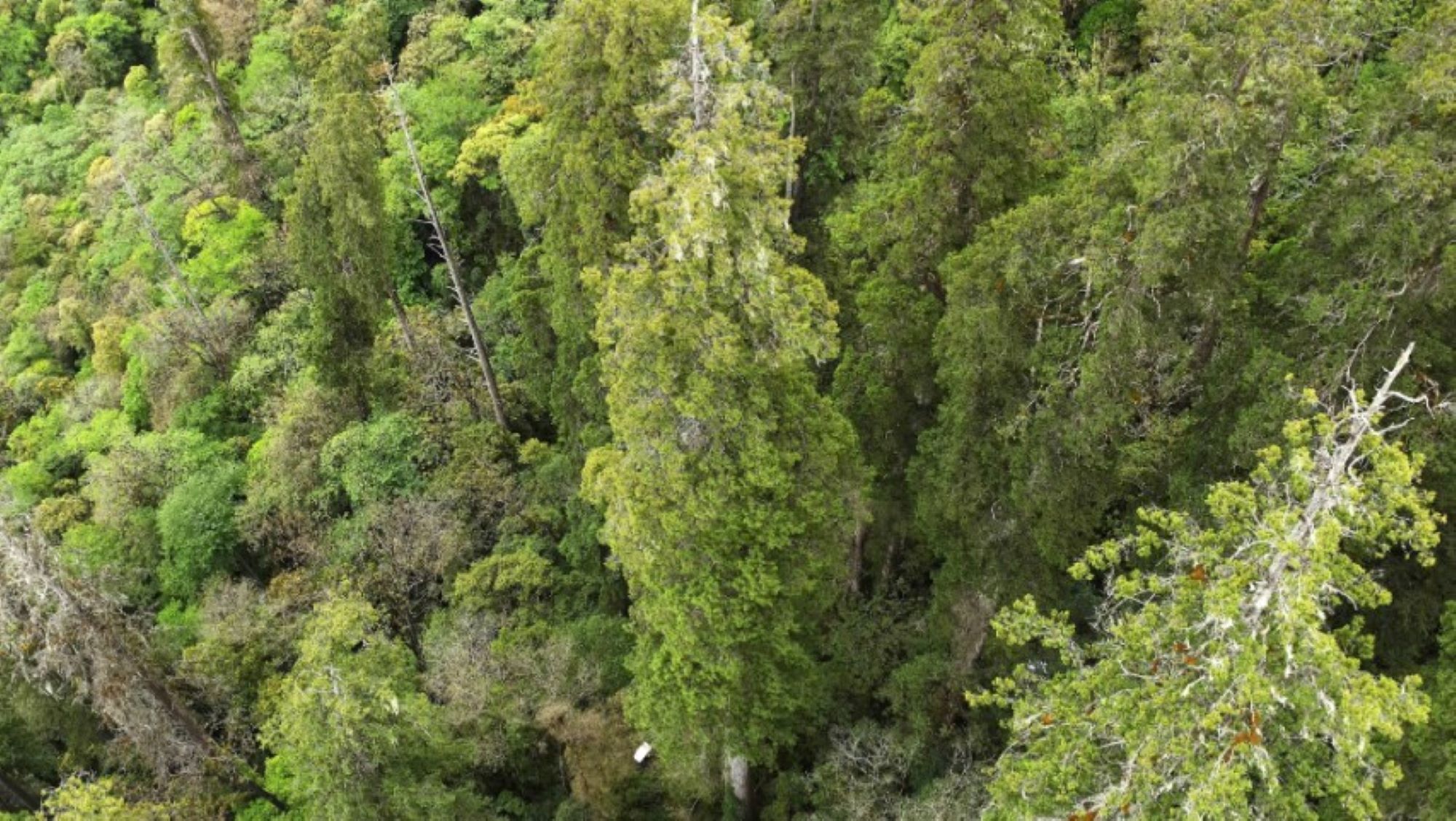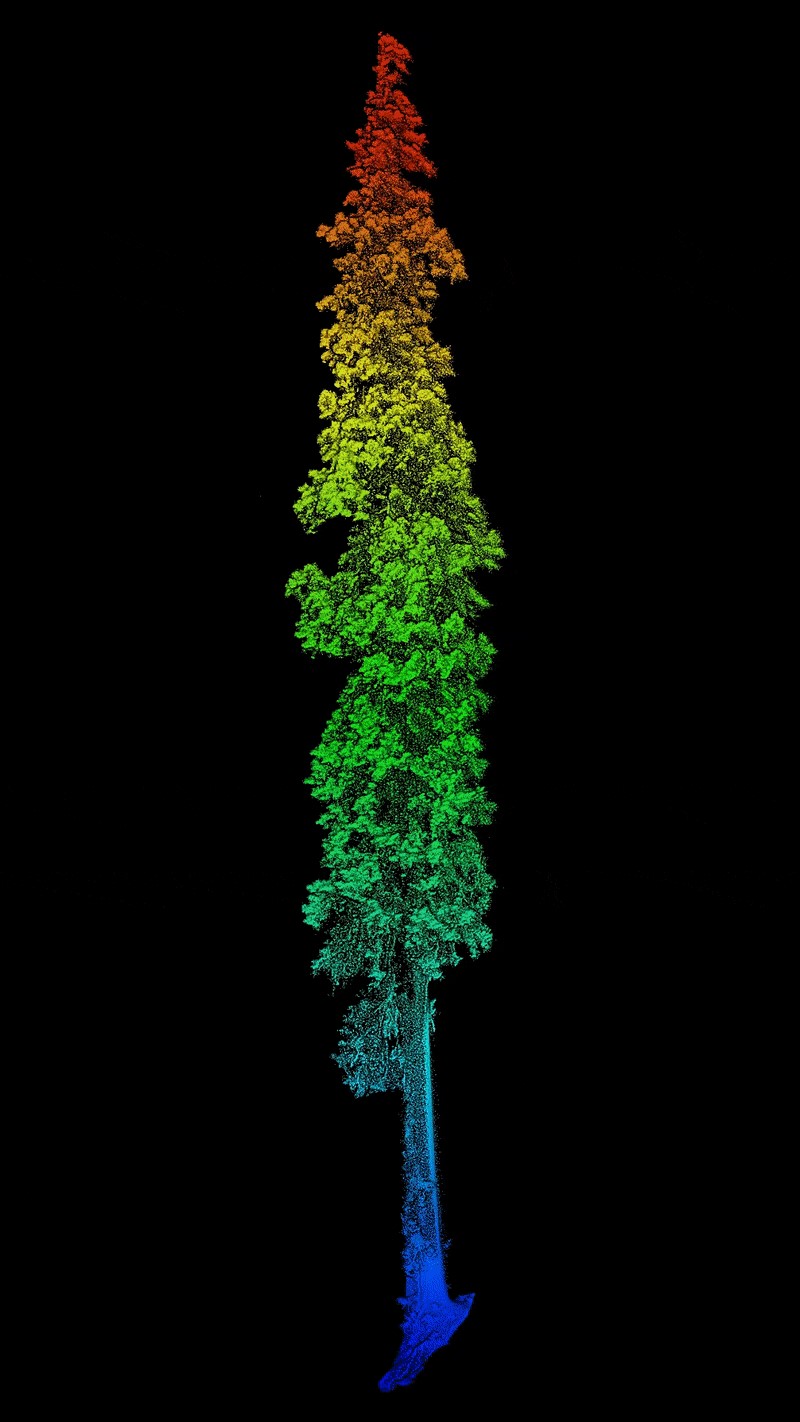
A cypress tree in China is the tallest tree ever discovered in Asia. It is also believed to be the second-tallest tree in the world, standing at an astonishing 335 feet (102 meters) tall. At this height, the tree would tower over the Statue of Liberty, which stands at 305 feet (93 m).
The gigantic cypress was discovered in May by a Peking University research team at the Yarlung Zangbo Grand Canyon nature reserve in Bome County, Nyingchi City, in the Tibet Autonomous Region of China, according to a statement released by the university.
The species the cypress belongs to is unclear, although Chinese state media publications suggested it is either a Himalayan cypress (Cupressus torulosa) or a Tibetan cypress (Cupressus gigantea).
The tree is 9.6 feet (2.9 m) in diameter, according to the state-run Chinese publication the People's Daily Online.

Before this discovery, Asia's tallest tree was a 331-foot-tall (101 m) yellow meranti (Shorea faguetiana) located in the Danum Valley Conservation Area in Sabah, Malaysia.
The Tibet Autonomous Region has a unique ecosystem that is increasingly influenced by development and global climate change. However, the area — and in particular Nyingchi City — has recently been the focus of conservation efforts to protect flora and fauna. The Peking University researchers have documented tall trees in the region to better understand the area's environmental diversity and to help ecological protection efforts, the statement said.
In May last year, the team found a 272-foot-tall (83 m) fir tree in southwest China, which they initially believed was the largest tree in China. The team also uncovered a 252-foot (77 m) tree in Medog County a month earlier.
Related: The oldest tree in the world (and the 7 runner-ups)
Continuing their survey this year, the researchers used drones, lasers and radar equipment to map out the trees in the area and identify their heights from the ground.
After days of field surveys, the cypress was found and confirmed as the tallest tree in Asia. Using drones, a 3D laser scanner and lidar technology — which uses light beams to provide distance measurements — the team created a 3D model of the enormous tree, providing accurate dimensions. Using this, they confirmed it was the tallest tree in Asia.

Guo Qinghua, a professor at the Institute of Remote Sensing of Peking University, told state newspaper the Global Times that the tree is interesting because its supporting roots are not completely buried underground. The tree also has a complex branching system that provides "ideal microclimates and habitats for some endangered plants and animals," a university statement said.
Currently, the tallest tree in the world is an 381-foot (116 m) coastal redwood (Sequoia sempervirens) in the Redwood National Park in California. The tree, estimated to be between 600 and 800 years old and nicknamed Hyperion after one of the Titans in Greek mythology, was discovered in 2006.
Last year, the U.S. Park Service decided to limit public access to Hyperion after visitors were found climbing the tree and left waste in the area, which damaged the surrounding undergrowth.







